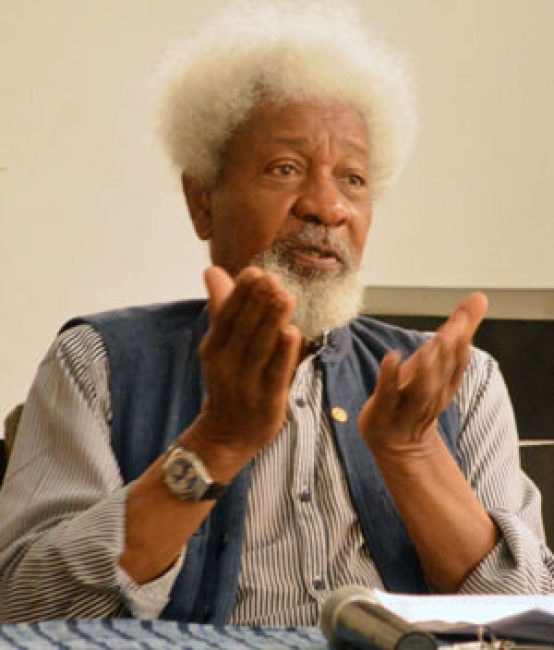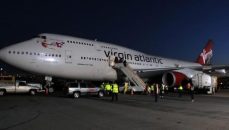

Nobel Laureate, Prof. Wole Soyinka, has condemned recent threats allegedly made by the National President of the Miyetti Allah Kautal Hore, Alhaji Abdullahi Bodejo on governors to carve a large portion of lands in their states for cattle colonies for peaceful co-existence.
Soyinka, who condemned the comments after he paid a courtesy visit on Governor, Samuel Ortom in Benue State, noted that each governor has the protection of the Nigerian constitution to take decisions and enforce them accordingly in the best interest of their states.
He described the grazing law, which states like Benue was implementing as the best that could promote modern method of animal husbandry.
“You see, each state must realise that it has to take its own decisions and enforce them as best as the state can.
“All I have to say to people who make such kind of threats is that when they come to Ogun State, we will have a suitable response for them and I think all the states of the federation should take the same position,” he maintained.
On the issue of border closure to boost local food production, Soyinka said the greatest mistake Nigerians leaders made at the beginning was to have embraced capital-intensive ventures like the steel industry instead of agriculture which he said is fast taking over crude oil.
Read Also: Court Jails Man 2 Years For Refusing To Return N99,000 Transferred In Error
“This is one of the things that had to be redressed. I think the mistake we made at the beginning of our development plans was going for heavy capital intensive ventures like the steel industry.
“I am trying to make a contrast with, for example, countries like India where they encouraged small or cottage industries for development.
“I visited one of the industrial states some years ago when Rajiv Ghandi was still the Prime Minister and I was impressed.
“I went through all the stores I saw all the small manufacturers. There were spare parts and also regional items required for development,” the Nobel laureate stated.
Soyinka insisted that it was better for the government to have put enough machinery in place to facilitate local food manufacturing before embarking on border closure.
According to him, “If we had done that at the very beginning, we would have a culture of local manufacturing, small scale but sufficient and distributed in a way in which there would be production centres all over the country.
“But, we have been concentrating on foreign production and I think the reason for that is the discovery of oil and we all began to drink oil and now we are choking on that product and that is our problem,” he said.





















